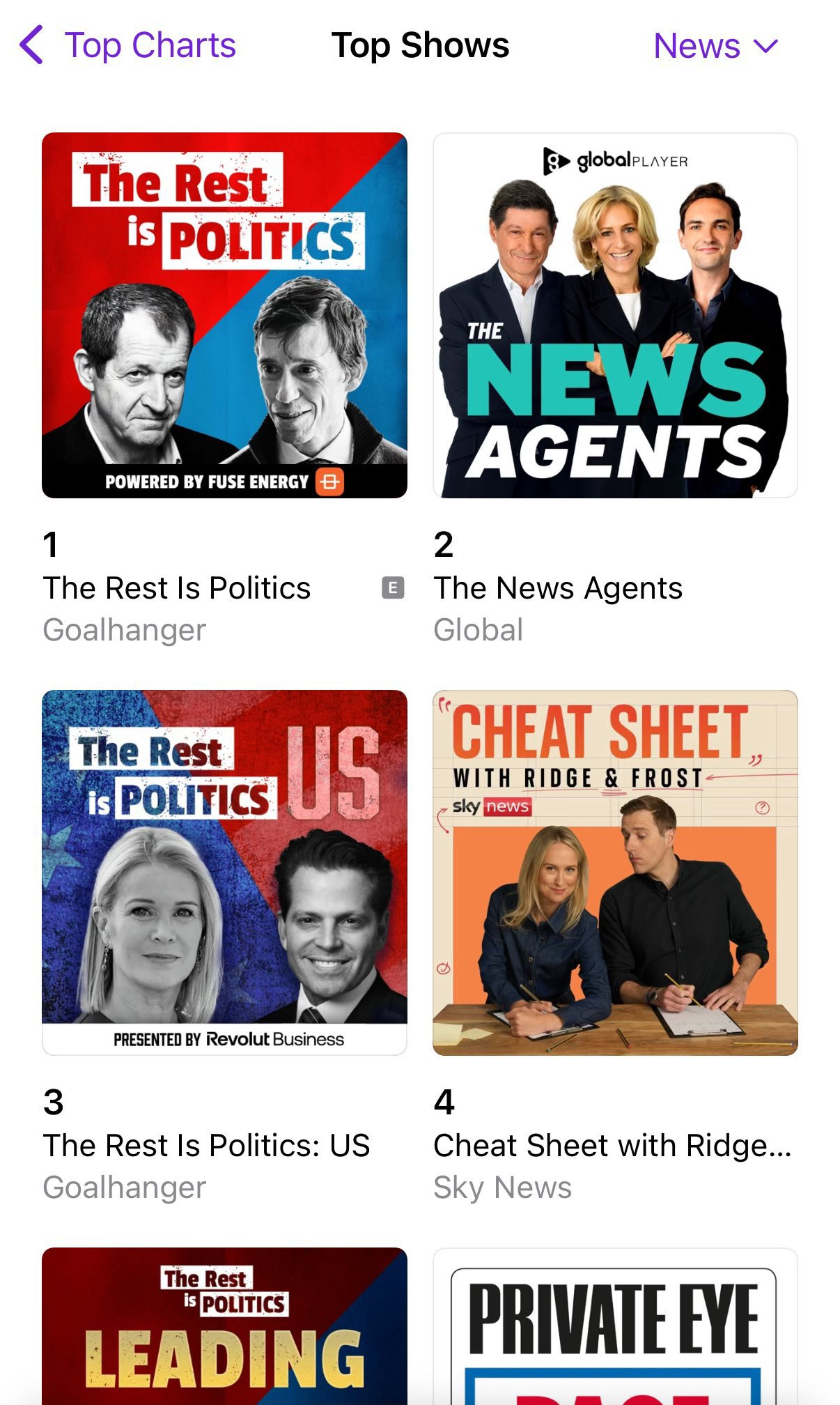Sick of Seeing These Same Smarmy Faces?
Here's How The Establishment Media Is Manipulating You
Emily Maitlis forcing her grimace into a smile, Private Eye sneaking into view and Alastair Campbell looking as smug and sulky as the bully Malcom Tucker who was written for him. A glance at the top podcast rankings on Apple and Spotify might leave you feeling somewhat…doomed!
Despite our constant laments of boring, elitist television execs deciding wha…




